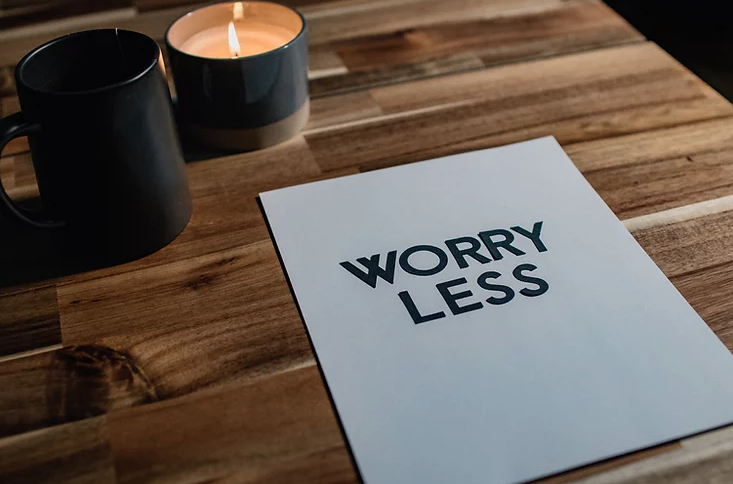
“Worrying doesn’t empty tomorrow of its sorrow, it empties today of its strength.” – Corrie Ten Boom
It’s important to develop self-compassion when you live with anxiety. Anxiety can be an incredibly uncomfortable experience. The pressure and high expectations from the people around us as well as our own perfectionist ideals can make this experience even worse. Anxiety can feel so unpleasant that our tendency is to try to get rid of it. And one way we try to get rid of it is by criticising ourselves for feeling it. Unfortunately, this leads to inner conflict. One part of yourself feels anxious; the other part judges the part that feels anxious. This only amplifies your anxiety.
According to research, the more people struggle with anxiety, the more anxious they feel. The more people fight against their feelings, the worse their anxiety symptoms become. Recognising that we are feeling this way and allowing ourselves to recognise that it is okay to feel this way can help us feel better. Anxiety is caused by a variety of factors, including genetics and past experiences. When people can allow themselves to feel what they are feeling in the moment, they can also then recognise that anxiety is not their fault.
According to Bowlby (1982), our ability to activate the soothing system is linked to our early experiences with a safe and sensitive caregiver. When children are distressed, they usually return to their caregivers for comfort (“their safe place”). If a caregiver responds to a child’s distress with understanding and is able to soothe and provide a sense of safety, the child learns that no matter how anxious or distressed they are, there is a place they can go where they feel safe. A child may not be able to learn to soothe and provide a sense of safety if a caregiver is unavailable or reacts with criticism or ridicule to a child in distress.
Being compassionate towards ourselves rather than critical is one way to deal with our anxieties. Self-compassion – treating ourselves with kindness can help to reduce anxiety. It also protects us from adding more anxiety to an already stressful situation. When we acknowledge that it is not our fault that we are overly anxious or worry about things more than others, we show compassion to ourselves. Treating your anxieties with compassion can help you reduce your desire to avoid a situation and improve your overall quality of life.
Here are some suggestions for practicing self-compassion when you are experiencing anxiety:
Acknowledge what you are feeling.
When we practice mindfulness, we allow ourselves to be aware of what we are experiencing. Practice focused, deep breathing and become aware of your worries, your fears, and what it is that is troubling you. You can tell yourself, “I’m feeling anxious, and this is really difficult right now,” and then pay attention to where in your body you feel it. Mindfulness helps you stop ruminating about what happened or what could happen.
Use self-talk that is compassionate.
Rather than fighting your anxiety, compassionate self-talk allows enables us to soothe and calm the anxious parts of the brain, allowing us to use coping strategies or problem-solve in a peaceful manner. Furthermore, using compassionate self-talk can help prevent your anxiety from worsening.
Remind yourself that you are not alone.
Everyone experiences anxiety at one point or another. You might simply say to yourself, “Many other people experience this, too.” Find words or phrases that remind you of your common humanity. Acknowledge that it is okay to feel this way and know that this is a normal part of being human and that we all struggle with anxiety.
Sources
Bowlby, J. (1982). Attachment and loss: Retrospect and prospect. Source. American Journal of Orthopsychiatry, Vol 52(4), Oct 1982, 664-678.